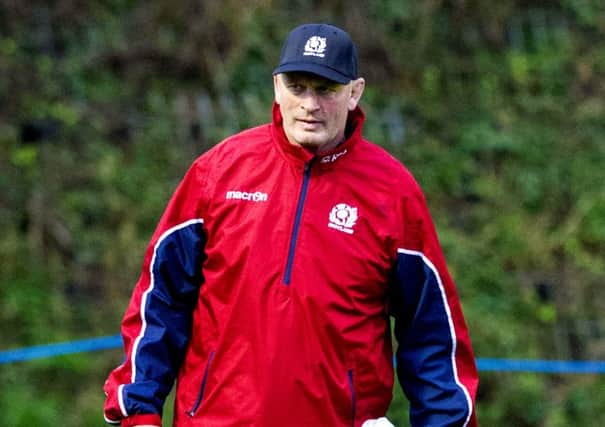Allan Massie: Time for young Scots to attack


Until recently, however, they were usually weak in the set-piece and poorly organised in defence. This was partly because they spent so little time together, and the consequence was that we usually beat them quite handsomely. For a long time too, Tonga were weaker than either Fiji or Samoa.
Things are different now, firstly because almost all of their squad now play their club rugby either in the Super 14 or for clubs in the top divisions of the northern hemisphere. So they are much more streetwise then they used to be.
Advertisement
Hide AdAdvertisement
Hide AdMoreover, though they still usually have less time together than the teams from the Six Nations, they have more than they used to. An admittedly understrength Wales struggled to beat Fiji last week, and Tonga defeated the USA very comfortably. Tonga also beat us in Aberdeen two years ago and beat France in the last World Cup. So nobody in the Scotland camp will be taking them lightly. Nevertheless everyone will realise that this is a match we should win, and must win, if the progress of this young Scotland XV isn’t brought to a grinding halt.
The four changes from last week’s starting XV, that injuries have forced Vern Cotter to make, shouldn’t weaken the side. Sean Lamont, Tim Visser, Geoff Cross and Johnnie Beattie are all proven internationals; indeed Lamont and Beattie are much more experienced than Mark Bennett and Adam Ashe whom they have replaced. Visser is not as good defensively as Sean Maitland, but he has scored more international tries, and has done so against very good opposition. Cross is a bit short of rugby, but he played for more than 50 minutes against New Zealand.
Scotland have played in aggressive fashion against both Argentina and New Zealand, but they haven’t yet, despite the five tries in the first match, played an expansive game. Most of the carrying has been done by the forwards, and the disappointing feature of the All Blacks match was the number of times possession was lost, or recycling was slow, when they had made inroads into the New Zealand defence. So the backs haven’t really had much opportunity to show what they can do in attack.
On the face of it, it’s satisfactory that four of our six tries have been scored by our back three. None of them however came from a backs move. Two were interceptions by Tommy Seymour; the other two were created by Greig Laidlaw’s alertness, the first when he took a tap penalty, the second when he darted through a gap at the side of a ruck. In these four tries there were only two (Scottish) passes, one to Sean Maitland and one to Stuart Hogg.
Some tactical developments have been evident. When the forwards are taking the ball up the first ball-carrier is not merely charging into the first defender, but is ready to move the ball on in an attempt to find a weak link in the defence. So they are trying to attack wider out. This is fine and if they win a quick secure ball, there should be opportunities for the backs, especially if there is a mismatch in the opposing defence.
What Scotland can’t afford is dropped passes in midfield or loose kicks. The former will be snapped up, the latter run back at them, and in broken play the Tongans will be very dangerous indeed.
Elsewhere, the big matches are in Cardiff and Dublin. I can’t see Wales beating the All Blacks, but if Ireland repeat the quality of their performance against South Africa a fortnight back, then Australia will go to Twickenham next week in a fairly desperate frame of mind.
Meanwhile, England can restore their confidence by putting Samoa away. They’re suffering at present from the volatility of the English press and supporters, who so often seem to have little sense of realities. An England XV must be either world-beaters or useless; there’s little middle ground.
Advertisement
Hide AdAdvertisement
Hide AdIn truth, Stuart Lancaster has put together a pretty good side, but one with evident limitations. A Lions XV for next weekend would be unlikely to include more than a couple of Lancaster’s squad. I feel sorry for young Owen Farrell, a talented player given the characteristic English treatment: praised extravagantly a few months ago, he is now the whipping-boy. It’s the old rooster into feather duster story.
Meanwhile, many English fans are pinning World Cup hopes on the return of Manu Tuilaigi and the arrival of the Rugby League convert Sam Burgess. We all know players often seem better when they are not playing. These two may do the job for England, but Tuilaigi is more often injured than fit, and Burgess hasn’t yet played a single game of Union.
Few players, however talented, adapt to the different code at once; some never do.